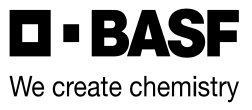Titan
Group 4
A broad-spectrum systemic insecticide for control of insect pests and for suppression of wireworms in potatoes
- Registered as a seed-piece treatment
- Titan controls many above-ground pests, including aphids, Colorado potato beetle, flea beetle and leafhopper and reduces the tuber damage caused by wireworms
- Early insect control helps plants grow without damage, maximize yield quality and reduce the risk of secondary diseases
Labels & SDS
6 AVAILABLE
Labels & SDS
Benefits of Titan
- Inhibits nerve activity in target insects by affecting sensory system (antenna, mouth, legs, wings or thorax)
Product Info & Application Guide
How Much to Apply
Pest |
Application method |
Application rates |
|---|---|---|
Aphid (including potato, green peach, foxglove and buckthorn aphids) |
Seed-piece treatment |
10.4 - 20.8 mL per 100 kg potato seed pieces |
Colorado potato beetle |
||
Potato leafhopper |
||
Potato flea beetle |
||
Wireworm1 |
20.8 mL per 100 kg potato seed pieces |
For extended residual control of pests other than wireworm, apply the higher rate.
1 Damage suppression only
Resistance Management Recommendations
- Insecticide use should be based on an IPM program that includes scouting and record keeping, and considers pest thresholds, as well as cultural, biological, and other chemical control practices
- Before using an insecticide, correctly identify the pest and monitor population levels in the crop. Only treat if action thresholds (i.e., pest numbers or damage level) are met or if forecasting models expect them to be met
- Where possible, rotate the use of insecticides with different insecticide groups that control the same pests
- DO NOT exceed the total number of applications of insecticide per year
- Use tank mixtures with insecticides from a different group that are effective on the target pest when such use is permitted
- Monitor treated pest populations for resistance development
- If you suspect resistance, contact BASF or your local extension specialist
- For more information on insecticide resistance best management practices, visit https://manageresistancenow.ca/insects/


